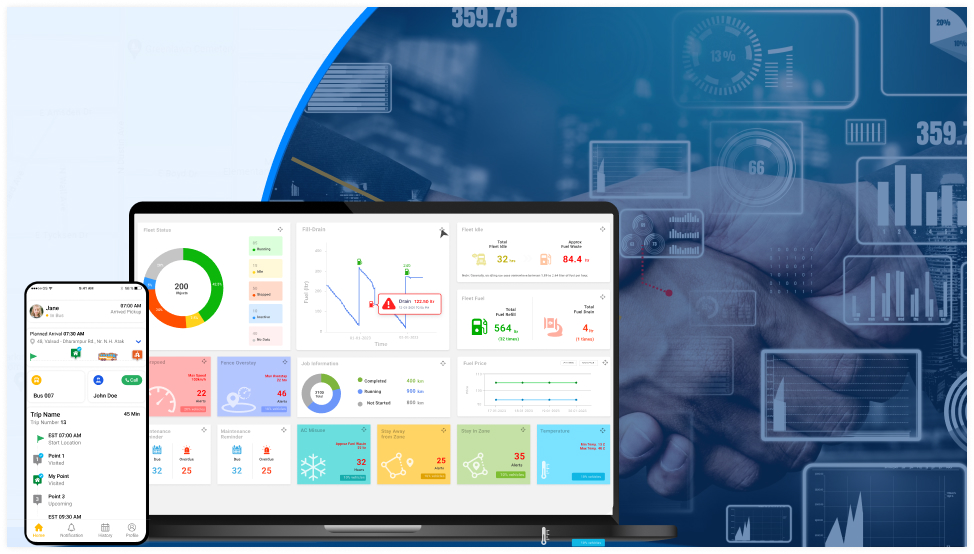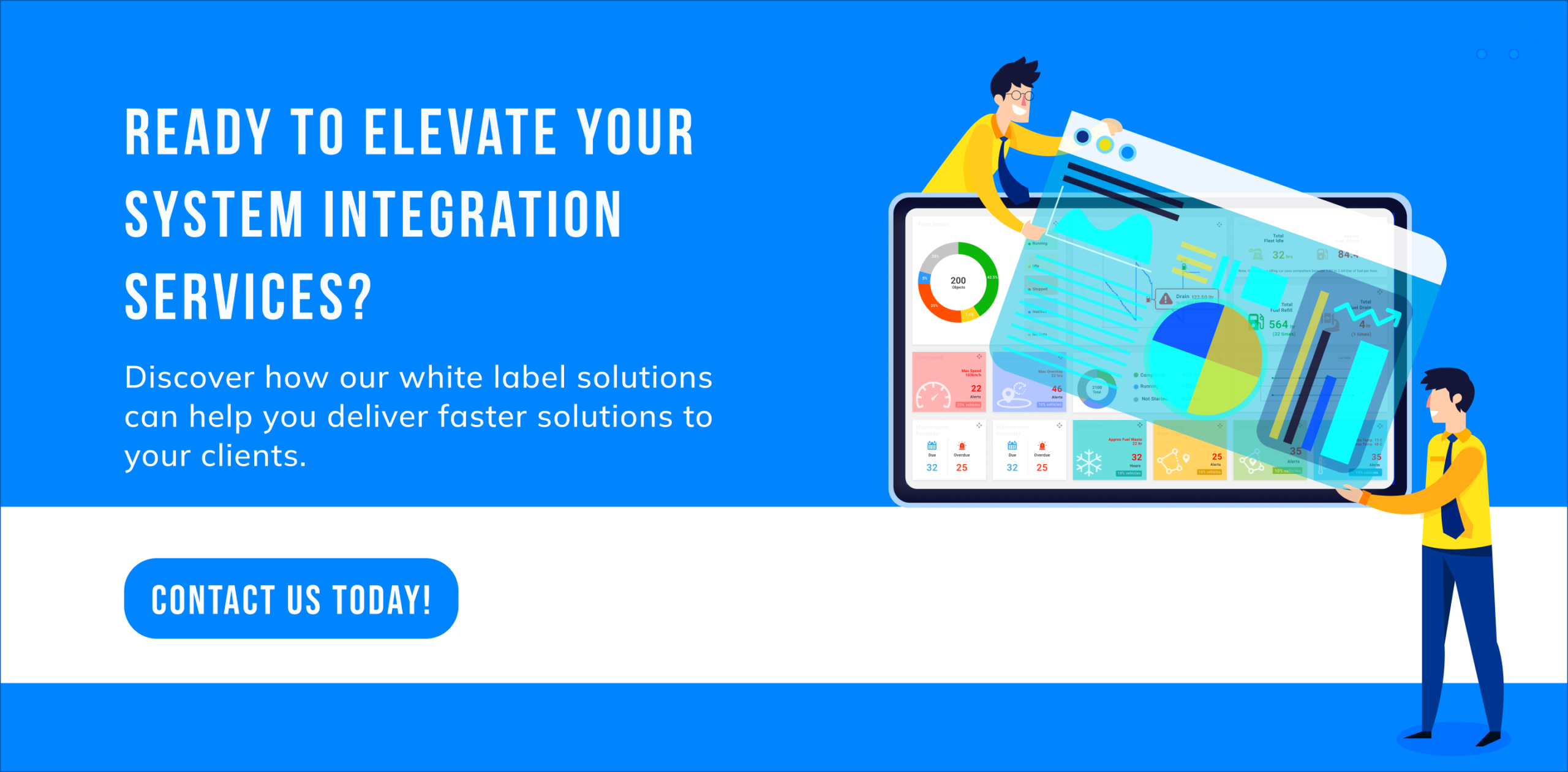How White Label Solutions Can Benefit System Integrators ?

System integrators play a crucial role in connecting different technologies to create seamless business solutions. In the school bus monitoring industry, the demand for reliable systems has increased significantly. Consequently, this has led to the rise of . These solutions offer significant benefits, enabling integrators to meet client needs efficiently and effectively.
1. Increased Flexibility and Customization
First and foremost, white label solutions provide integrators with customizable, pre-built software that can be tailored to specific client requirements. As a result, this approach saves time and resources while ensuring the final product aligns with client expectations. Additionally, integrators can rebrand the software to match the client’s identity, giving them the flexibility to adjust solutions based on client feedback.
2. Faster Time to Market
Moreover, with white label solutions, integrators can bypass lengthy development processes and deliver ready-made solutions quickly. As a result, this accelerates project timelines, helps clients get up and running with minimal delay, and enables integrators to capitalize on market opportunities faster.
3. Cost-Effective Solutions
Another key benefit is that white label solutions eliminate the high costs associated with developing software from scratch. In turn, this makes them more affordable for both integrators and clients. This approach reduces expenses related to development and ongoing maintenance, thus making it a cost-effective solution for all parties involved.
4. Focus on Core Competencies
Furthermore, using white label solutions allows integrators to concentrate on their primary expertise—delivering high-quality integration services—without getting bogged down in software development complexities. This focus not only enhances service quality but also strengthens client relationships over time.
5. Improved Client Relationships
White label solutions also enable integrators to deliver tailored solutions quickly, thereby building stronger client relationships. Clients feel understood and valued, which often leads to long-term partnerships and repeat business. As a result, integrators can enjoy better retention rates.
6. Reduced Risk of Technical Issues
In addition, pre-tested and refined white label solutions minimize the risk of technical problems. This, in turn, reduces implementation challenges and post-deployment issues, ensuring a smoother process for both integrators and clients.
4 Key Advantages Include:
Pre-tested software: Reduces the risk of bugs and glitches.
Lower risk of post-deployment issues: Ensures smoother implementation.
1. Scalable Solutions for Growing Needs
As businesses grow, white label solutions offer scalability, allowing integrators to expand and enhance the software as required. Whether clients need to add more buses or upgrade their monitoring capabilities, these solutions accommodate changing needs, ensuring they remain future-proof. Thus, integrators can provide scalable solutions without extra strain.
2. Competitive Advantage in the Market
On top of that, offering white label solutions gives integrators a competitive edge. They can provide advanced, customizable software without the delays and costs of in-house development. Consequently, this enables quick adaptation to market trends and client demands, which keeps integrators ahead of their competitors.
Benefits Include:
Competitive pricing: Lower development costs allow for better pricing.
Quick adaptation: Respond faster to market trends and client demands.
1. Seamless Integration with Existing Systems
Not only do white label solutions offer scalability, but they are also designed for easy integration with existing technologies. As a result, this reduces the time and effort required for deployment. This compatibility minimizes disruptions during implementation, ensuring a smooth transition for clients.
2. Enhanced Brand Value
By rebranding white label solutions to reflect their identity, integrators can enhance their brand value. In turn, this helps build trust with clients and increases market recognition. This association with a high-quality product strengthens the integrator’s brand reputation, which can lead to new business opportunities.
3. Access to Advanced Features
Additionally, white label solutions often include advanced features that would be time-consuming and costly to develop in-house. As a result, integrators can offer cutting-edge technology to their clients without additional development work. This allows them to stay competitive with up-to-date features and technologies.
4. Focus on Delivering Value-Added Services
Since the core software is already developed, integrators can focus on delivering value-added services like training, installation, and ongoing support. This, in turn, allows them to stand out in the market by offering comprehensive service packages, which enhance client satisfaction.
5. Better Resource Allocation
Furthermore, white label solutions free up resources that would otherwise be spent on software development. This allows integrators to allocate time and money more efficiently to other areas of their business. As a result, improved resource management leads to better overall performance and profitability.
6. Meeting Client Expectations
Lastly, white label solutions enable integrators to meet or exceed client expectations by delivering reliable, customized solutions on time. This reliability helps integrators build a reputation for high-quality service, ensuring they meet unique client needs and enhance client satisfaction.
Conclusion
White label solutions empower system integrators to efficiently meet client needs by providing flexibility, reducing time to market, and lowering costs. By focusing on their core competencies, integrators can strengthen client relationships, gain a competitive edge, and enhance their brand value in the market. This strategic approach not only improves overall business performance but also positions integrators as trusted partners in delivering high-quality, customized solutions.



